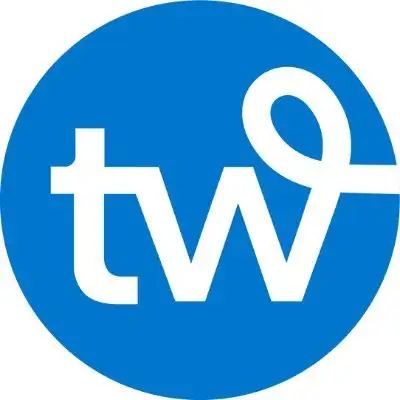Iconosquare review: A comprehensive social media customer service tool
Iconosquare is best known for its robust analytics and scheduling capabilities, but it also offers features that support effective social media customer service. As brands increasingly rely on social platforms to engage with their audience, tools like Iconosquare help streamline communication, monitor interactions, and analyze engagement across channels. In this review, we’ll explore how Iconosquare functions as a customer service tool, alongside its features, advantages, limitations, usability, and competitive position.
Overview of Iconosquare
Iconosquare is a social media management platform originally built with a focus on Instagram analytics. Over the years, it has evolved into a multi-platform solution, supporting Instagram, Facebook, LinkedIn, TikTok, and X (formerly Twitter). While primarily analytics-driven, the platform also includes features that help businesses monitor mentions, respond to audience interactions, and manage their social inbox.
Iconosquare is particularly popular among marketers, agencies, and social media teams that require accurate performance tracking, visual reporting, and streamlined communication tools in one dashboard.
Key features of Iconosquare
One of Iconosquare’s core customer service functionalities is its Inbox feature, which allows users to monitor and manage comments and mentions from Instagram and Facebook. This enables brands to respond to their audience directly from the platform, ensuring timely engagement and consistent customer support.
In addition to inbox management, Iconosquare includes social listening and monitoring tools. Users can track branded hashtags, mentions, and tagged content, helping them stay aware of customer feedback, user-generated content, or potential issues in real time.
The platform’s analytics dashboard goes beyond surface-level metrics. It provides insights into audience behavior, post engagement, and optimal posting times, which can inform customer service strategies. Iconosquare also supports competitive benchmarking, allowing brands to compare their performance against industry peers—valuable for adjusting communication and response strategies based on competitor behavior.
Iconosquare’s content calendar and publishing features make it easy to plan and maintain a consistent posting schedule while keeping customer-facing teams aligned on upcoming campaigns and announcements.
Pros of using Iconosquare
Iconosquare excels at visual data presentation and in-depth reporting. For customer service teams, this means easier tracking of response rates, comment volume, and user sentiment trends. The Inbox feature streamlines engagement by centralizing comment management, helping brands stay responsive on Instagram and Facebook.
The hashtag and mention tracking adds another layer of insight, enabling brands to engage with users even outside direct comments. This type of proactive customer service builds brand loyalty and prevents negative experiences from going unnoticed.
Iconosquare also offers custom reports and team collaboration features, which make it easier for marketing and support teams to share insights and work together to improve customer experience.
Cons of Iconosquare
Despite its strengths, Iconosquare has some notable limitations as a customer service tool. The Inbox currently supports only Instagram and Facebook, which means brands active on LinkedIn, X, or TikTok will need other tools to handle direct messages or comments on those platforms. This lack of multi-platform inbox support can be a dealbreaker for businesses with a broader social media footprint.
In terms of automation, Iconosquare doesn’t offer features like AI-generated replies, chatbots, or automated tagging of interactions—capabilities that other tools such as Sprout Social or Zendesk provide. This can limit scalability for larger customer service teams or businesses with high volumes of social interactions.
Pricing may also be a consideration. While Iconosquare delivers high-quality analytics and scheduling features, smaller teams may find the cost high relative to the limited customer support functionalities.
Usability and user experience
Iconosquare’s interface is clean, professional, and intuitive. The platform is easy to navigate, even for first-time users. Its real-time comment tracking and analytics dashboards are particularly well-designed, offering clarity without overwhelming the user.
Team members can collaborate within the platform, share performance insights, and export custom reports. Additionally, Iconosquare offers mobile support via its app, which is helpful for on-the-go monitoring and engagement.
The platform provides onboarding guides, help documentation, and responsive customer support, ensuring that users can make the most of its features without a steep learning curve.
Comparison with other tools
Compared to other social media customer service platforms, Iconosquare stands out for its analytics-first approach. It provides deeper insights into performance metrics than most competitors, which is ideal for brands focused on optimizing customer interaction strategies based on data.
However, when it comes to multi-channel customer engagement and automation, platforms like Sprout Social, Agorapulse, or ContentStudio offer broader inbox coverage and more advanced customer service workflows.
That said, for brands focused primarily on Instagram and Facebook, and who value analytics just as much as engagement, Iconosquare offers a powerful and streamlined experience.
Bottom line
Iconosquare is a robust tool for brands seeking in-depth analytics and consistent scheduling, with bonus features that support effective social media customer service—particularly on Instagram and Facebook. While it lacks multi-platform inbox support and automation, its performance insights, visual reporting, and engagement tracking make it a valuable asset for data-driven teams. For businesses prioritizing visual platforms and looking to improve their customer engagement with an analytical edge, Iconosquare is a smart choice.










